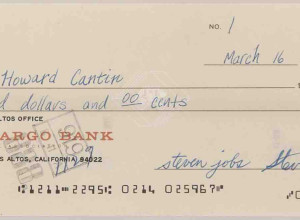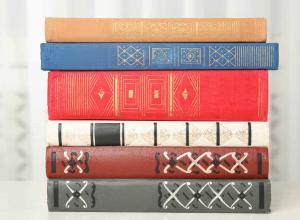“Symbols of Honor: Heraldry and Family History in Shakespeare’s England” To Open at the Folger
Washington, DC—Contrary to popular belief, English Renaissance heralds did not play trumpets. Think of them as the earliest professional brand consultants, genealogists, and trademark protectors. They had the singular power to bestow enduring and easily recognizable symbols of status and honor upon individuals and institutions who had the proper lineage, reputation, and wealth.
A new exhibition at the Folger, curated by Nigel Ramsay and Heather Wolfe, casts light on the colorful and controversial world of English heraldry, and for the first time, brings original drafts of Shakespeare’s coat of arms from England to the United States.
“The Folger’s collection of heraldic and genealogical manuscripts is an untapped treasure, exploring the extensive resources that the heralds created in order to perform their duties,” says Heather Wolfe. “I love that the manuscripts reveal the heralds as human beings with distinct personalities and work ethics, as they struggle and compete to professionalize the field.”
Heralds created coats of arms that symbolized the values, status, and sometimes the last name, of the commissioning individual, such as Shakespeare’s “spear” on his arms. Heralds also guaranteed that an individual’s arms were unique and regulated how they could be used by other family members. An individual’s arms could be displayed on buildings, clothing, armor, monuments, rings, utensils, cups, plates—virtually anywhere the individual wanted to assert his or her status.
More than 50 books and manuscripts, including the Folger’s unique collection of the working papers of the most influential heralds from Shakespeare’s time, reveal the astonishing growth and importance of heraldry in the period, and the ways in which early modern heralds shaped modern genealogy.
On exhibit July 1 - October 26.
EXHIBITION HIGHLIGHTS
- Shakespeare’s arms: Three original drafts of Shakespeare’s coat of arms, featuring a spear in the shield, on loan from the College of Arms in London, the heraldic authority for England, Wales, and Northern Ireland.
- A herald’s guide: In a heraldic alphabet book of nearly 11,000 coats of arms, the author provides a description of a herald’s chief attributes: Humble, Expert, Righteous, Advised, Learned, Dutiful (HERALD).
- Early family tree: The earliest known collection of English regional pedigrees, begun in the 1480s, shows the difficulty of making family trees in book format instead of on long scrolls.
- Idea book: John Guillim’s book contains examples of the many figures a herald could choose from in designing a coat of arms, including all varieties of fish.
- Herald rivalry: An unpublished treatise of one herald accusing another of abusing his office in various ways, including granting arms to people of too lowly a status, and other books and manuscripts that reveal tension among the heralds.
- Royal lineage: This new acquisition to the Folger collection colorfully depicts Elizabeth I’s family tree, complete with roots, trunk, limbs, and leaves.
- Amateur genealogy: The earliest known example of a research-based genealogy and family history compiled by the head of the family.
ABOUT THE CURATORS
Nigel Ramsay is a Senior Research Fellow in the School of Law at the University of Exeter since 2013, as well as a research fellow in the History Department of University College London since 1997. A historian of medieval and Tudor England, he previously held posts at Canterbury Cathedral and in the Department of Manuscripts of the British Library. He has edited histories of Canterbury Cathedral and Ely Cathedral as well as English Medieval Industries: Craftsmen, Techniques, Products. A new collection of essays, Heralds and Heraldry in Shakespeare’s England, publishes in July 2014.
Heather Wolfe is curator of manuscripts at the Folger Shakespeare Library. She has curated numerous Folger exhibitions and has written widely on early modern manuscripts and the intersections between print and manuscript. Recent publications include The Trevelyon Miscellany of 1608 (2007), The Literary Career and Legacy of Elizabeth Cary (2007) and Letterwriting in Renaissance England (2004), co-written with Alan Stewart
RELATED PROGRAMS
Enjoy the world of heraldry with talks, music, and family programs this season!
For tickets or registration, visit www.folger.edu.
Family Program
Exploring Heraldry
July 5, 10am. Free. Registration required.
Come learn about ways individuals and families shared their identity through heraldic design. Design your own shield! Recommended ages 6-12.
Lecture
Shakespeare's Coat of Arms and the Early Modern Heraldry Wars
July 17, 7pm. Free.
Scholar Kathryn Will discusses the social milieu surrounding one of England’s most famous coat of arms.
Family Program
We Are Shakespeare
August 2, 10am. Free. Registration required.
Explore the words of Shakespeare and the ways he shared questions of identity. Think about how language describes who you are, and find yourself in Shakespeare’s words. Recommended ages 6-12.
Family Program
Family History, Shakespeare Style
September 6, 10am. Free. Registration required.
Family was an important theme of Shakespeare’s plays, and family history is also a theme of our exhibition. Think about your family and how you all fit together. What happens when you shake your family tree? Recommended ages 6-12.
Lecture
The Institute of Heraldry: Guardians of our National Symbolic Heritage
September 19, 6:30pm. Free.
Charles V. Mugno, Director of the U.S. Army Institute of Heraldry, discusses the use of heraldry in the modern American military.
Consort
Courting Elizabeth: Music and Patronage in Shakespeare’s England
September 26-28, times vary. $37.
Folger Consort performs dances and viol pieces by John Dowland and Tobias Hume. Featuring tenor James Taylor and viol consort Arcadia Viols.
Lecture
Peter O’Donoghue, York Herald
October 1, 6:30pm. $15/$10 for Members.
Peter O’Donoghue, York Herald at the College of Arms, discusses the history of the College of Arms and his role as an officer of arms.
ONLINE RESOURCES
Visit www.folger.edu/heraldry for an online version of Symbols of Honor that explores selections from this exhibition, case by case.
VISITOR SERVICES
Tours
Monday - Friday at 11am & 3pm, Saturday at 11am & 1pm, and Sunday at 1pm
Folger Docents offer guided tours of the exhibition, as well as the Folger’s national landmark building, free of charge. No advance reservations required.
Group Tours
Docent-led tours of the exhibition, as well as the Folger national landmark building, are offered for groups of 10 or more. To arrange, please call (202) 675-0395.
ABOUT THE FOLGER
Folger Shakespeare Library is a world-class center for scholarship, learning, culture, and the arts. It is home to the world’s largest Shakespeare collection and a primary repository for rare materials from the early modern period (1500-1750). The Folger is an internationally recognized research library offering advanced scholarly programs in the humanities; an innovator in the preservation of rare materials; a national leader in how Shakespeare is taught in grades K-12; and an award-winning producer of cultural and arts programs—theater, music, poetry, exhibitions, lectures, and family programs. By promoting understanding of Shakespeare and his world, the Folger reminds us of the enduring influence of his works, the formative effects of the Renaissance on our own time, and the power of the written and spoken word. A gift to the American people from industrialist Henry Clay Folger, the Folger —located one block east of the U.S. Capitol—opened in 1932. Learn more at www.folger.edu.















